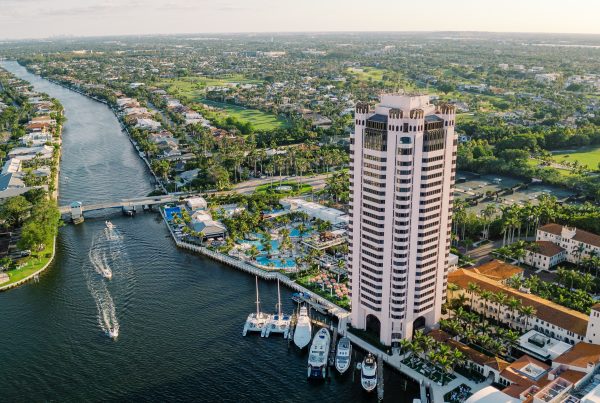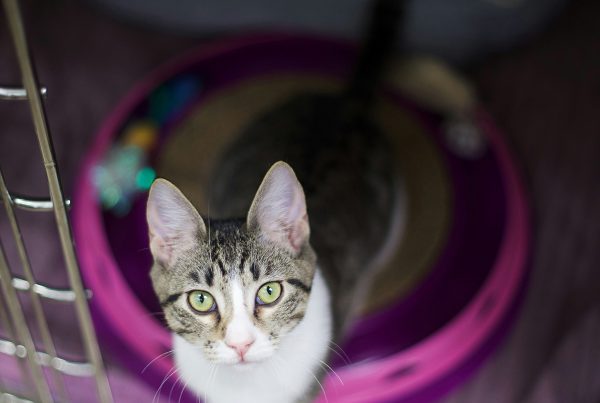I met Caridad Asensio about 15 years ago. I was interested in doing a story on Palm Beach County migrant farm workers and I was directed to her. She had started a free clinic largely for that population back then, and had dedicated her life to making theirs better, from finding them some kind of housing to getting their kids in school, to finding medical treatment that could save their lives. It was Caridad who drove me out into the fields and introduced me to a woman who had walked here from Guatemala, retrieving her children one by one, to escape famine and political persecution. It was Caridad who showed me the packing houses and the field workers and the migrant camps, an entire population only miles from Palm Beach—but in a different world entirely.
Caridad started a clinic 20 years ago with Connie Berry to give these “forgotten” people a shot at breaking out of the cycle of poverty, a cause she believed in with a passion that is normally reserved for those people who change the world. And change the world she did. Caridad had been sick for a long time; she died this weekend. Here is just a little of who she was.
Caridad Asensio, 79, co-founder of the Caridad Center, Boynton Beach, Fla., Florida’s largest free clinic, has died. Asensio’s name means “charity” in Spanish, but her legacy translates to a level of medical aid and social services to the Palm Beach County working poor that was unprecedented before her time. A social worker and health educator, Asensio met fellow schoolteacher and Clinic co-founder Constance Berry in what year at the Hagen Ranch Elementary School in then agricultural west Boynton Beach.
Many of the school children the women taught were from farm worker families in dire need of medical and dental care, food, clothing and homework help. The two women founded the Migrant Association of South Florida in 1989 to help the children and provide housing to agricultural workers and their families.
Three years later, they started a free clinic in a modest doublewide trailer at U.S. 441 in Boynton Beach, Fla., with the help of volunteer doctors and dentists. On opening day at 7 a.m., nearly 400 people were lined up to receive services. The pair soon began raising funds from local donors to purchase land and built a 7,500-square-foot building in Boynton Beach, a few miles east of the original location.
It was the all-volunteer model that made the clinic unique and effective, a model that continues to grow and evolve today. But it was the other part of the clinic that also contributed to Asensio’s growing status as an advocate for the poorest of the poor—finding homes for displaced families, starting after-school homework and scholarship programs, helping with funeral expenses and Christmas toys. Asensio provided outreach any way she could to the people who needed it most and she ultimately put the “other side” of Palm Beach County on the map: the undocumented workers, the working poor, the sick, the families who fell between the cracks of Americas social system. She started an organization that not only gave hope to the poor, but also began to turn their lives around.
In the past few decades, that organization has redefined healthcare in Palm Beach County, and has become a model for humanitarian outreach.
Its heart was Caridad Asensio.
Last year, more than 24,500 patient visits were made from 6,500 unduplicated patients who utilized Caridad’s free medical, dental and vision clinics through the expertise and dedication of more than 400 volunteers, providing health and social services to the community. Caridad Center also provided outreach services of emergency food, rent and clothing to more than 2,000 families last year, and educational-enrichment services for 75 children each school year.
Her work was widely recognized. In 2010 she was inducted in the 2010/2011 Florida Women’s Hall of Fame by the Florida Commission on the Status of Women. She was also a Junior League Woman Volunteer of the Year.
National awards included the Presidential Volunteer Service Award, Common Cause Annual Public Service Award and The National Jefferson Award, among others.
“Her vision and her dream were fulfilled,” said Ms. Berry. “She was passionate and believed everyone deserved food, clothing, an education and access to a doctor and a dentist.”
Her children, Alana Ripoll and Manuel Asensio, four grandchildren and two sisters, survive Asensio.
The viewing will be held from 6:00 p.m. to midnight at the Maspons Funeral Home, 3500 SW 8th Street, Miami, Fla., 33135.
Mass will be celebrated at noon, Thursday, November 3 at the Church of the Little Flower, 2711 Indian Mound Trail, Coral Gables. Fla., 33134.
A memorial service will be held at 10 a.m., Saturday, November 5 at the Caridad Center, 8645 W. Boynton Beach Blvd., Boynton Beach, Fla., 33472.






